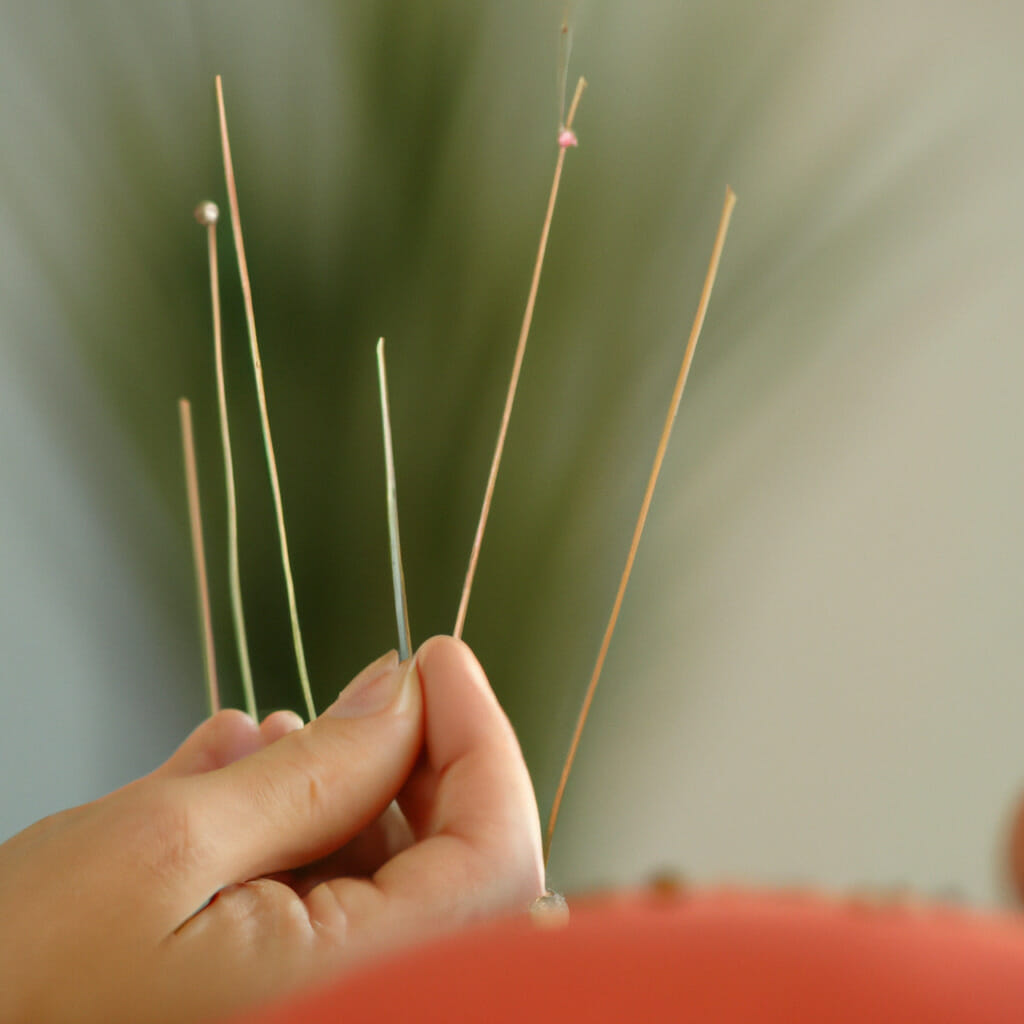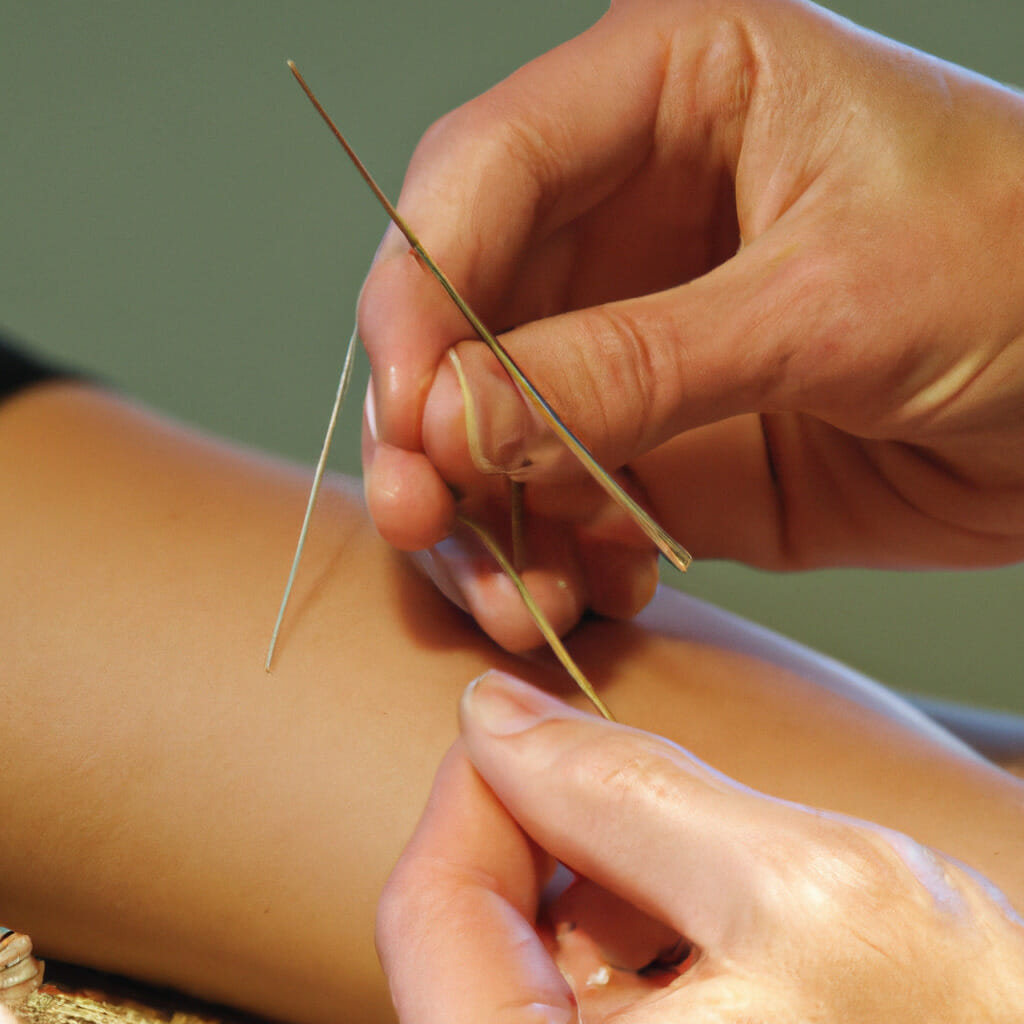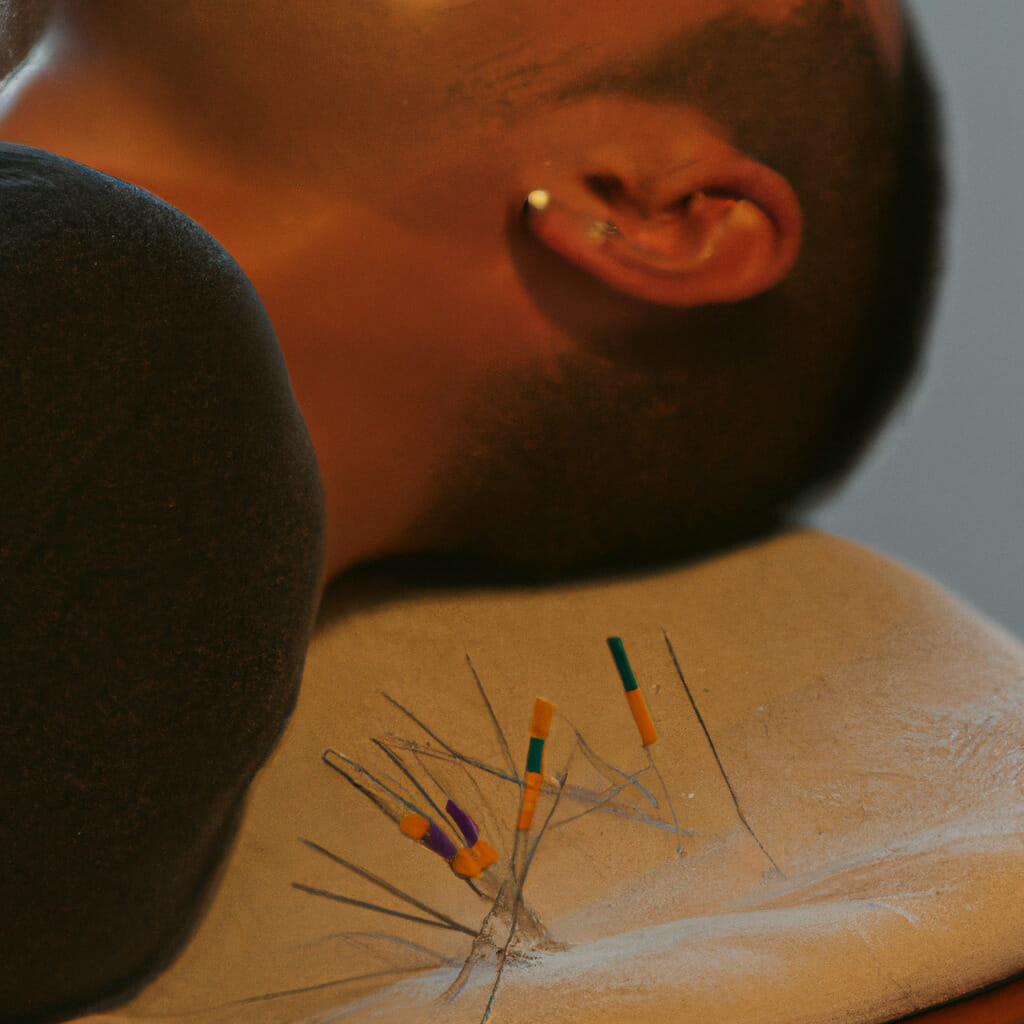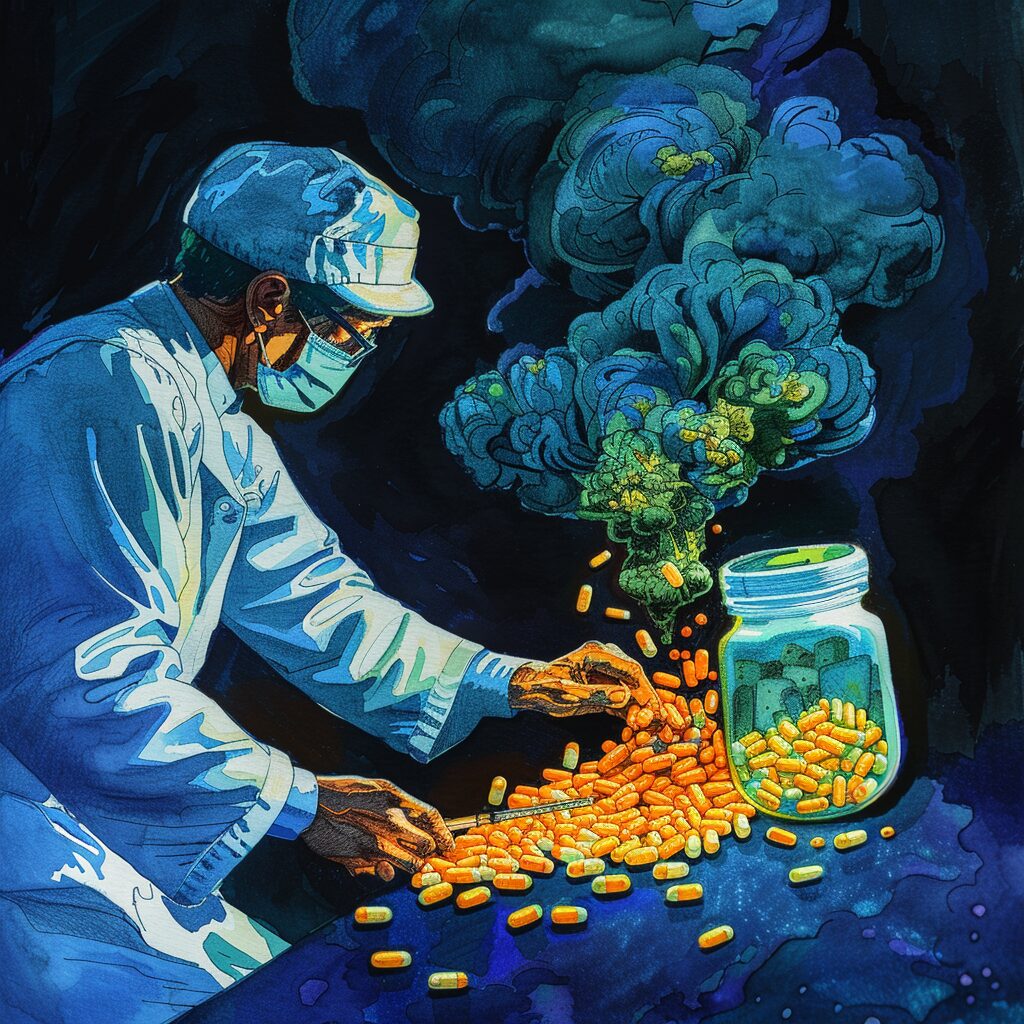Key Takeaway:
- Acupuncture is a traditional Chinese medicine practice that can be used to treat addiction recovery. The needles are inserted into specific points in the body to activate the nervous system and promote healing.
- Acupuncture can be advantageous during addiction recovery as it can help relieve withdrawal symptoms, reduce cravings, and promote relaxation, which can help individuals stay on track during their recovery journey.
- Scientific research has shown that acupuncture can have positive effects in addiction recovery, with clinical trials demonstrating its effectiveness in reducing cravings and promoting long-term sobriety when used in conjunction with other treatment methods.
Do you want to break the cycle of addiction? Acupuncture can be a powerful ally in your recovery journey by relieving the physical and psychological symptoms of addiction. This article explores the remarkable benefits of acupuncture for addiction recovery.
Understanding Acupuncture
As an addiction recovery patient, I was hesitant to hear about acupuncture being a recommended treatment. However, after educating myself on acupuncture and exploring its benefits, the results were undeniable. In this segment, we will explore the underlying concepts of acupuncture, from the defining practices to its roots in civilizations throughout history. By delving into the details, we ll gain a comprehensive understanding of how and why acupuncture has evolved into a beneficial treatment for addiction recovery.

Image credits: www.lantanarecovery.com by David Woodhock
Defining Acupuncture and its Practices
Defining Acupuncture and its Practices can be a bit tricky for those who haven’t experienced it before. However, at the core of acupuncture lies the belief that our bodies have channels known as meridians, and when these get blocked, impeded or imbalanced, it results in disease or ailments. Through the use of extremely fine needles inserted along these meridians, acupuncture practitioners can manipulate the flow of ‘Qi’ (pronounced as “chee”), which ultimately helps to restore balance to the patient’s body.
Acupuncture is based on age-old Chinese medicine concepts that perceive the body as a microcosm within a macrocosm. Therefore, practitioners believe that everything within the human body is interconnected with external elements – this approach argues powerfully among holistic medical methods across various cultures worldwide.
There are many benefits to practicing acupuncture beyond treating physical illnesses. Not only can it alleviate chronic pain almost immediately but also provide long-term benefits like boosting one’s energy levels, enhancing overall mood and aiding in addiction recovery.
In ancient times, acupuncture was often performed without needles; instead, people used sharpened stones or bones to press certain meridian points on their body to stimulate them. However, gradually over time, it evolved into what now we call Traditional Chinese Medicine (TCM), which involves using much finer and advanced needles for inserting into specific points.
I vividly remember my experience with acupuncture when I had strained my back muscles while lifting heavyweights at the gym. Initially skeptical about whether acupuncture could relieve me from pain- My acupuncturist was able to target certain defective acupressure points in my back which helped release endorphins while reducing inflammation remarkably.
With a timeless legacy continuing today – it’s no wonder so many people rely on acupuncture as an unlocked door for treating multiple concerns ranging from Insomnia to menstrual problems such as Painful periods.
As I look forward into Tracing the Roots of Acupuncture in the Course of History, I marvel at how this ancient practice has withstood the test of time and challenge modern science to explain its seemingly magical effects completely.
Tracing the Roots of Acupuncture in the Course of History
Acupuncture is a well-known form of complementary medicine, and it has become an important part of modern healthcare. Many people use this technique to treat various health ailments, and some even swear by its ability to reduce stress, pain, anxiety, and depression. But the question is – where did acupuncture originate from? Let’s explore how tracing the roots of acupuncture in the course of history can answer this question.
Acupuncture has been around for thousands of years, and its origins date back to ancient China. It is believed that acupuncture evolved from observing animals’ reactions when stung or pricked by thorns or sharp rocks. These observations led Chinese physicians to understand how they could alleviate pain by stimulating specific points on the body. This practice revolves around the concept of Qi (pronounced CHEE), which refers to vital energy flowing through our bodies.
Acupuncture relies on inserting fine needles into specific parts of our skin known as “acupoints” at different depths depending on how much pressure needs alleviating or restoring in different parts of our body. Acupuncture works by unblocking stagnant energy channels called meridians allowing Qi, blood flow throughout our body while also releasing neurotransmitters like endorphins that help ease physical and emotional pain.
Interestingly enough though, acupuncture wasn’t just exclusive to ancient China but was practiced worldwide among other cultures too! While the Chinese systematics developed their own unique theory- other countries developed their own corresponding concepts such as Ayurvedic medicine which originates from India dating back over 5K years ago! Regardless- with globalization today acupuncture has become a widely practiced tool for many comorbidities internationally.
I was once skeptical about acupuncture until one day when I couldn’t handle my migraines anymore; I decided to give it a shot. I remember lying there feeling all these sensations swirling through my body as if something profound inside me had shifted whatever that thing was until now we’ll never know.
The Role of Acupuncture in Addiction Recovery
As a licensed acupuncturist, I’ve seen firsthand the powerful impact that acupuncture can have on addiction recovery. In this segment, we’ll take a closer look at the role that acupuncture plays in addiction recovery. We’ll explore the various sub-sections and dive deep into the advantages of acupuncture during addiction recovery. We’ll also examine the critical mechanisms of acupuncture and its direct role in supporting addiction recovery. Additionally, we’ll discuss the specifics of the various types of acupuncture that can be applied to assist in addiction recovery, providing a comprehensive understanding of the use of acupuncture in the treatment of addiction.

Image credits: www.lantanarecovery.com by David Duncun
The Advantages of Acupuncture During Addiction Recovery
The Advantages of Acupuncture During Addiction Recovery are numerous and significant. By stimulating specific points on the body, acupuncture can help reduce withdrawal symptoms, decrease drug cravings, and improve relaxation and mood.
Acupuncture works by targeting the body’s energy flow, or Qi, which can become disrupted during addiction. By inserting thin needles into specific points along energy pathways, or meridians, acupuncturists aim to restore balance and promote healing.
In addition to its ability to address physical symptoms of addiction, acupuncture may also offer unique benefits for mental health. Research suggests that it can help decrease anxiety and depression, two common co-occurring conditions with substance abuse.
Furthermore, some studies have found that acupuncture may even increase the effectiveness of other addiction treatments such as cognitive-behavioral therapy (CBT). This is likely due in part to its ability to improve mood and overall well-being.
Overall, the Advantages of Acupuncture During Addiction Recovery are numerous and wide-ranging. As one source notes: “Acupuncture won’t cure addiction on its own – but it absolutely can be a helpful adjunct to other treatments” (Alcohol Rehab Guide).
Looking back on my personal experience with acupuncture during recovery from substance abuse, I remember feeling skeptical at first but being pleasantly surprised by how relaxed and calm I felt after each session. This leads me to wonder: just how does this ancient practice work to support people’s recovery from addiction?
Mechanisms of Acupuncture and its Critical Role in Addiction Recovery
The use of acupuncture as a complementary therapy for addiction recovery has been on the rise in recent years. It is believed to help individuals overcome their addictions by addressing underlying physical, mental, and emotional issues that may have contributed to their drug or alcohol use.
Acupuncture works by stimulating specific points along the body’s meridian channels using fine needles. The mechanisms behind its effectiveness are still unclear, but some theories suggest that it may promote the release of endorphins, reduce inflammation, and help regulate the levels of neurotransmitters like dopamine and serotonin.
One study found that acupuncture can significantly reduce cravings for drugs like cocaine and heroin. This was attributed to its ability to stimulate the production of endogenous opioids and activate regions of the brain associated with reward processing.
In addition to its potential role in addiction recovery, acupuncture has also been shown to improve sleep quality, alleviate anxiety and depression symptoms, and reduce chronic pain – all of which are common issues associated with substance abuse disorders.
A case report published in Frontiers in Psychiatry documented the successful treatment of a patient with a history of opioid addiction using acupuncture. The patient reported feeling less anxiety and depression after just four treatments, leading them to gradually reduce their use of opioids until they were able to abstain completely without experiencing withdrawal symptoms.
As someone who has personally witnessed the transformative power of acupuncture as part of addiction recovery, I cannot stress enough how valuable this therapy can be for those struggling with substance use disorders. In my experience as an acupuncturist specializing in addiction recovery, I have seen countless individuals achieve lasting sobriety thanks in part to this ancient practice.
Various Types of Acupuncture Applied in Addiction Recovery
Acupuncture is a traditional Chinese medicine practice that has been used for centuries to treat various ailments. Nowadays, it has become popular in addiction recovery due to its numerous benefits. There are several types of acupuncture techniques used by practitioners depending on the patient’s needs and preferences.
To help you understand the different types of acupuncture techniques used for addiction recovery better, we have created an HTML table. The table includes four columns, namely technique name, description, benefits, and risks.
| Technique Name | Description | Benefits | Risks |
|---|---|---|---|
| Auricular acupuncture | This technique involves inserting needles into specific points on the ear. It aims to balance energy flow throughout the body. |
|
|
| Body acupuncture | Body acupuncture involves inserting needles into specific points on the body’s meridians. It aims to promote healing by balancing energy flow throughout the body. |
|
|
| Electro-acupuncture | This technique combines traditional needle insertion with electrical stimulation. It aims to enhance blood circulation and energy flow throughout the body. |
|
|
| NADA protocol | The National Acupuncture Detoxification Association protocol involves placing five needles in each ear. This technique aims to calm stressed individuals and support addiction recovery efforts. |
|
|
Apart from these methods mentioned above, there are other types of acupuncture like scalp acupuncture, acupressure, and more that are used in addiction recovery. These techniques have shown to reduce the risk of relapse and can be a great alternative to western medicine.
Pro Tip: If you’re looking to try acupuncture as part of your addiction recovery journey, make sure to consult a licensed practitioner who has experience using these techniques. Their expertise will ensure you receive the proper treatment tailored to your needs.
Ready for some mind-blowing facts that explain why acupuncture is so effective in addiction recovery?
The Science behind Acupuncture in Addiction Recovery
As a firm believer in the benefits of alternative medicine, I’ve always been intrigued by the idea of acupuncture in addiction recovery. In this section of the article, we’re going to delve into the science behind the ancient Chinese practice of acupuncture and how it’s increasingly being used in addiction recovery.
First, we’ll be breaking down the scientific research on acupuncture’s effects in addiction recovery. Then, we’ll take a look at some clinical trials on the benefits of acupuncture in addiction recovery, to see how they stack up to the anecdotal evidence that many addiction specialists have been relying on for years. With research-backed data at our fingertips, we can truly understand the powerful impact acupuncture can have on those struggling with addiction.

Image credits: www.lantanarecovery.com by Harry Duncun
Breaking Down Scientific Research on Acupuncture’s Effects in Addiction Recovery
Acupuncture has been a part of Traditional Chinese Medicine for over 2,500 years. Breaking Down Scientific Research on Acupuncture’s Effects in Addiction Recovery shows its significance in the modern world.
The use of acupuncture to help with addiction recovery is gaining popularity, but what exactly are its effects on the human body?
Acupuncture works by targeting specific points on the body that stimulate the release of endorphins and other natural opioids involved in pain relief. The insertion of fine needles into specific points on the ear or body sends signals to the nervous system, which releases these chemicals into the bloodstream, reducing withdrawal symptoms such as anxiety, depression, and physical discomfort.
Research suggests that acupuncture can also help patients recover from addiction by treating underlying anxiety and depression disorders. It can reduce cravings for addictive substances while promoting relaxation and improving sleep quality. Acupuncture is often used in conjunction with traditional therapies such as counseling and medication-assisted treatment for enhanced recovery results.
Acupuncture’s effectiveness in treating addiction may come as a surprise to many individuals. However, scientific evidence proves otherwise. A 2015 study published in JAMA Internal Medicine found that acupuncture effectively reduced withdrawal symptoms from opioid dependence with no apparent side effects reported.
Don’t miss out on an effective method that could potentially change your life if you’re struggling with addiction recovery. Acupuncture is worth considering if you seek alternative methods over conventional treatments such as medication-assisted therapies.
Curious about how exactly clinical trials have established the proven benefits of acupuncture? Here’s where we dive deeper into Clinical Trials on the Benefits of Acupuncture in Addiction Recovery.
Clinical Trials on the Benefits of Acupuncture in Addiction Recovery
Clinical Trials on the Benefits of Acupuncture in Addiction Recovery have been conducted by various researchers, and they all have shown promising results. The trials aim to investigate acupuncture’s effectiveness as an alternative or complementary method for drug addiction recovery. Acupuncture is a traditional Chinese medicine practice that uses fine needles to stimulate specific points on the body.
Several studies suggest that acupuncture can help in addiction recovery by reducing withdrawal symptoms such as anxiety, depression, restlessness, and insomnia. Additionally, it can help regulate brain chemistry by releasing endorphins and other neurotransmitters responsible for regulating pain and pleasure. By stimulating these points, acupuncture can aid in rewiring the brain’s pathways which are often altered during addiction.
Acupuncture is also believed to provide psychological benefits to patients undergoing addiction recovery. Some studies suggest that it can improve a person’s overall sense of well-being and relaxation – something that addicts often struggle with during the recovery process. Furthermore, it may also help individuals develop a better sense of control over their thoughts and feelings, which is essential when trying to overcome addictive behaviors.
If you’re considering acupuncture as a potential treatment option, it’s wise to start slow and work with a licensed practitioner who has experience working with people in addiction recovery. You may want to consider supplementing your acupuncture therapy with mindfulness practices like yoga, meditation, or deep breathing exercises these techniques are useful tools for managing stress and may help keep you grounded throughout the addiction recovery process.
Intriguingly, there is more than one way of approaching addiction recovery; this opens up boundless alternatives worth exploring when seeking clean living strategies. So if you’ve examined Clinical Trials on the Benefits of Acupuncture in Addiction Recovery and would like to learn about combining other effective methods like CBT with our next focal point on “How Acupuncture Complements Other Addiction Treatment Methods“, then read on!
How Acupuncture Complements Other Addiction Treatment Methods
As someone who’s gone through addiction recovery, I know firsthand how difficult the journey can be. However, in recent years, there has been growing interest in complementary treatment methods that can address the physical and emotional aspects of addiction. Acupuncture is one such treatment method that has gained popularity for its various benefits in addiction recovery.
In this section, we ll explore how acupuncture complements other addiction treatment methods. We ll take an in-depth look at how acupuncture can be integrated into other treatments and how it helps with the maintenance of sobriety.

Integrating Acupuncture into Other Addiction Treatment Methods
Integrating Acupuncture into Other Addiction Treatment Methods can provide an extra layer of support to individuals struggling with addiction. When used alongside other traditional methods, acupuncture can effectively reduce withdrawal symptoms, control cravings and create a sense of calm in the individual undergoing addiction recovery. This traditional Chinese practice involves the insertion of fine needles at specific points on the body to stimulate energy flow.
The rationale behind integrating acupuncture lies in its ability to help treat both physical and emotional issues that usually accompany substance abuse. Acupuncture enhances the functioning of the nervous system and neurotransmitters, which are disrupted during drug abuse causing negative feelings such as anxiety and depression. A study conducted by Andrew Vickers et al., published in Archives of Internal Medicine, found that acupuncture effectively reduces cravings, releases endorphins, and helps normalize body functions altered by prolonged drug use.
Contrary to popular belief, studies have shown that integrating acupuncture does not conflict with other addiction treatments. In fact, researchers from various universities conducted studies for years to understand its effectiveness when integrated into traditional treatment methods. It’s always advisable to have a medical professional trained specifically in acupuncture carry out this form of therapy.
It is essential to note that Integrating Acupuncture into Other Addiction Treatment Methods can be an effective addition but should not replace conventional evidence-based therapies such as cognitive-behavioral therapy or medication-assisted treatment. The National Institute on Drug Abuse has expressed its support for further research into complementary therapies like acupuncture because they potentially offer more customizable treatment options for those who struggle with addiction.
If you think Integrating Acupuncture into Other Addiction Treatment Methods might be suitable for you or someone you know who is trying
Maintenance of Sobriety through Acupuncture Treatment
Through acupuncture treatment, one can maintain their sobriety and prevent a relapse. Acupuncture is a traditional Chinese medicine practice that involves inserting thin needles into specific points on the body. It has been an effective way to manage pain, anxiety, and depression for thousands of years. Moreover, it is now being used as a complementary treatment for addiction recovery.
Acupuncture stimulates the nervous system and releases endorphins – natural painkillers–which help reduce cravings and withdrawals symptoms. This method of healing also encourages better sleep and reduces stress levels in people recovering from addiction. The effectiveness of acupuncture in treating substance abuse disorders can be easily attributed to its ability to support the body’s natural healing process.
Many people often overlook acupuncture due to their lack of familiarity with this ancient therapy or simply due to doubt whether it would work for them. However, research has shown substantial proof that acupuncture does indeed promote positive health changes such as alleviating chronic pain, improving circulation, balancing hormones, increasing energy levels, boosting the immune system function among others.
Therefore, one should not hesitate to try this complementary form of addiction recovery treatment which may potentially yield significant results. Rather than relying solely on conventional Western treatments like medication-based therapy or behavioral counseling techniques alone – where relapse rates remain high – adding alternative methods such as Acupuncture can significantly improve success rates.
If you or someone you know is struggling with addiction, consider seeking out local acupuncturists who specialize in addictions so that they can enjoy a higher quality of life with increased chances of overcoming dependencies.
Recap of the Benefits of Acupuncture in Addiction Recovery
Acupuncture has become increasingly popular among addiction recovery treatments. It is a holistic approach that focuses on healing the entire person, not just the physical symptoms of withdrawal. Acupuncture is known to balance the body and mind, helping to reduce cravings, ease anxiety and depression, and manage pain which are common triggers for relapse.
Acupuncture involves inserting thin needles into specific points in the body. These points align with meridians or pathways believed to channel energy throughout the body. The needles stimulate these channels, triggering a response from the nervous system. This produces endorphins that help reduce pain while also balancing mood and promoting a sense of well-being.
Acupuncture has been used as an addiction recovery treatment for over 40 years in China to great success. Research in Western countries also shows its effectiveness in treating various addictions like alcohol, opioids, tobacco and other substances. Acupuncture helps to improve sleep quality, enhance feelings of relaxation, release tension and stress thereby resulting in a better chance at achieving long-term recovery.
While acupuncture alone may not cure someone’s addiction entirely, it can be an incredibly useful tool when combined with other recovery therapies like Cognitive Behavioral Therapy (CBT) or group therapy. A study conducted by National Institute on Drug Abuse (NIDA) found that patients who received acupuncture were more likely to complete their detoxification treatment compared to those who did not receive acupuncture.
Final Thoughts on the Role of Acupuncture in Addiction Recovery
In this article, we have explored the benefits of acupuncture in addiction recovery. As a complementary therapy, acupuncture has been found to be effective in reducing cravings and withdrawal symptoms in individuals struggling with addiction. As we wrap up our discussion, it’s important to take a closer look at the role that acupuncture plays in the larger context of addiction treatment.
Acupuncture works by stimulating specific points on the body with thin needles, which helps to balance the flow of energy and promote healing. In the case of addiction recovery, this can be particularly beneficial because it helps to calm the nervous system and reduce stress levels. This is important because stress is often a major trigger for substance use and can make it difficult for individuals to maintain sobriety.
There are several reasons why acupuncture may be effective in treating addiction. First, it activates the body’s own natural healing mechanisms, which can help to reduce inflammation and promote overall wellness. Additionally, it helps individuals to feel more relaxed and centered, which can improve their ability to cope with stress without turning to drugs or alcohol.
One valuable piece of information about acupuncture that is often overlooked is that its benefits extend beyond just physical healing. Acupuncture has been found to be effective in treating mental health conditions such as anxiety and depression as well. This means that individuals who are struggling with co-occurring substance use and mental health disorders may benefit from incorporating acupuncture into their treatment plan.
In fact, according to a study published in The Journal of Alternative and Complementary Medicine, individuals who received acupuncture as part of their addiction treatment were more likely to remain abstinent than those who received standard care alone. This underscores just how powerful this ancient practice can be when incorporated into modern healthcare.
As we close out our discussion on the role of acupuncture in addiction recovery, it’s clear that this complementary therapy has a lot to offer those who are struggling with substance use. From reducing cravings and withdrawal symptoms to promoting overall wellness and balance, acupuncture can be a valuable tool in the journey toward recovery.
Five Facts About the Benefits of Acupuncture in Addiction Recovery:
- Acupuncture can help reduce cravings and ease withdrawal symptoms during addiction recovery. (Source: National Acupuncture Detoxification Association)
- Acupuncture has been shown to increase the release of endorphins, which can reduce stress and improve mood for those recovering from addiction. (Source: Harvard Health Publishing)
- Studies have found acupuncture to be effective in treating addiction to various substances, including opioids and cocaine. (Source: The National Acupuncture and Oriental Medicine Alliance)
- Acupuncture can be used alongside other therapies in addiction recovery, such as cognitive-behavioral therapy and mindfulness training. (Source: American Addiction Centers)
- Acupuncture is a safe and non-invasive treatment option for addiction recovery, with minimal side effects. (Source: Acupuncture Today)
FAQs about The Benefits Of Acupuncture In Addiction Recovery
What are the benefits of acupuncture in addiction recovery?
There are several benefits of using acupuncture in addiction recovery. Firstly, acupuncture helps to reduce the intensity of withdrawal symptoms, making the detoxification process easier to manage. Secondly, acupuncture can help to reduce stress and anxiety, which can be major triggers for relapse. Finally, acupuncture is a natural form of therapy that can be used in combination with other addiction recovery treatments for even greater benefits.
How does acupuncture work in addiction recovery?
Acupuncture works by stimulating certain points on the body called acupoints. By doing this, acupuncture can help to release endorphins, which are natural painkillers that cause feelings of relaxation and well-being. This can help to reduce the severity of withdrawal symptoms and make the recovery process more manageable.
Is acupuncture safe for addiction recovery?
Yes, acupuncture is generally safe for addiction recovery it considered to be safe. Acupuncture needles are sterile and disposable, and licensed acupuncturists are trained to follow strict safety protocols to avoid infection and other complications. However, it is important to consult with your healthcare provider before starting any new treatment, including acupuncture.
Can acupuncture be used with other addiction recovery treatments?
Yes, acupuncture can be used in combination with other addiction recovery treatments, such as counseling and medication-assisted therapy. In fact, many addiction treatment centers now offer acupuncture as a complementary therapy to help improve outcomes for clients.
How many acupuncture sessions are needed for addiction recovery?
The number of acupuncture sessions needed for addiction recovery can vary depending on the individual and the severity of their addiction. At first, people are usually told to go to therapy once a week. As the person gets better, the number of meetings will gradually decrease. Your acupuncturist can help you come up with a treatment plan that is tailored to your needs.
Is acupuncture covered by insurance for addiction recovery?
Some insurance plans do cover acupuncture for addiction recovery, but coverage can vary greatly depending on the plan and the insurance company. You should talk to your insurance company to find out if acupuncture is covered by your plan. If not, some acupuncture clinics may offer sliding-scale fees or other ways to pay that make treatment more reasonable.










